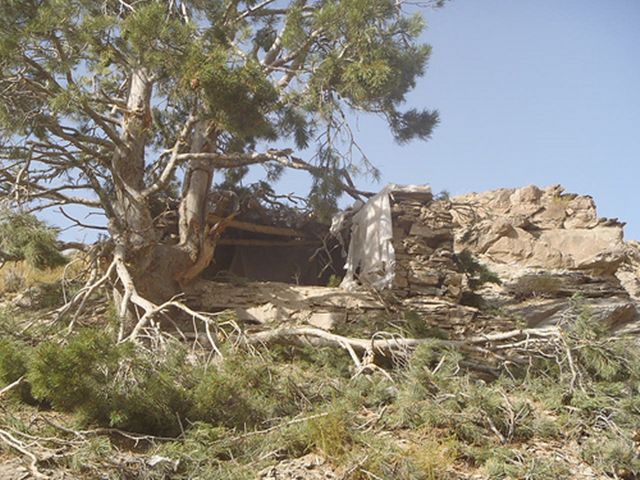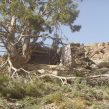
Haqqani Network Growing Stronger at the Expense of the Tehrik-e-Taliban
Publication: Terrorism Monitor Volume: 9 Issue: 31
By:

The Tehrik-e-Taliban Pakistan (TTP) seems to be slowly disintegrating as various commanders try to pull it in different directions. A clear indication of this process came when the TTP Commander in the Kurram Agency, Fazal Saeed Haqqani, announced that his group had seceded from the TTP (for Fazal Saeed Haqqani, see Militant Leadership Monitor, July 2011). Fazal Saeed Haqqani also announced the formation of a new group called Tehrik-e-Taliban Islami Pakistan (TTIP) (Dawn [Karachi] June 28). Haqqani said his group was not happy with the TTP’s policy of attacking civilian targets, a major reason for the split. However, Haqqani and his group have been involved in the murders of innocent Shi’a Muslims. In the very first statement to dissociate his new group from the TTP, Haqqani announced that his group would not carry out any attacks on the Pakistani security forces (The News [Karachi] June 28). He also announced that the United States is the TTIP’s “main enemy” (Daily Times [Lahore] June 28).
The action of Fazal Saeed Haqqani has completely eliminated the TTP from the Kurram agency, as Haqqani vowed that he would not allow the TTP to operate there: “It is my area and I will ensure that no locals or outsiders oppose our policies and create problems for us in Kurram Valley” (The News, June 30). Like Maulvi Nazir and Hafiz Gul Bahadur, Fazal Saeed Haqqani is closely allied with the Haqqani Network in Afghanistan (Dawn, July 5). The Haqqani Network desperately needed a foothold in the Kurram agency, which only Fazal Saeed Haqqani could provide. According to Mansur Khan Mehsud of the FATA Research Center, Fazal Saeed Haqqani is occupying a portion of the main road, the Thall-Parachinar road, connecting Kurram Agency with the rest of the country. While still a TTP commander, Fazal Saeed Haqqani did not allow Shi’a Muslim residents to use that road. Consequently, they had to go to Afghanistan first to go to other parts of Pakistan. [1] With Fazal Saeed Haqqani in charge of that road, the Haqqani Network and other Taliban militants can use the Kurram Agency as their base to carry out attacks inside Afghanistan or to provide sanctuary. [2]
NATO forces in Afghanistan identified the Haqqani Network as the group responsible for a brazen attack using nine suicide bombers against Kabul’s luxury Intercontinental Hotel on June 28 that killed 20 people, including the suicide bombers (AP, June 30). Shortly afterward, the Haqqani Network suffered a major blow when NATO troops and Afghan Special Forces mounted a raid on a Haqqani Network training camp in Afghanistan’s Paktika Province. The July 20-22 operation killed more than 50 insurgents in a base said to be used as a staging point for Haqqani Network and foreign fighters. A large stockpile of arms was seized in the operation, which NATO sources said was based on intelligence provided by disenchanted insurgents (Daily Times, July 23; AFP July 22; Reuters July 22).
Nevertheless, Fazal Saeed Haqqani’s rebellion against the TTP has immensely strengthened the Haqqani Network while weakening the TTP. According to one report, TTP commander Hakimullah Mehsud has become more and more isolated over the last year (Express Tribune [Karachi], July 5). On June 27, Hakimullah suffered a setback when unknown persons killed Shakirullah Shakir, a spokesman for the Fidayeen-e-Islam [suicide-bombing] wing of the TTP. Shakirullah was to replace Qari Hussain Mehsud, who was killed in an October 2010 drone strike and was known as Ustad-e-Fidayeen (master [or teacher] of the suicide bombers) (Daily Times [Lahore] June 28). Commander Tariq Afridi’s Taliban group in Darra Adamkhel and Khalid Omar’s Mohmand group are already operating independently of the TTP. Lashkar-e-Islam in Khyber Agency, led by Mangal Bagh, is pro-Army and does not accept TTP patronage. The TTP breakup is a great success for Pakistan’s Inter-Services Intelligence (ISI), which has been working for some months to deliver Kurram Agency to the Haqqani Network so that it could operate more freely in view of the emerging regional scenario (see Terrorism Monitor, December 16, 2010). Distrust among the TTP militants seems to be growing. According to another report, Hakimullah Mehsud and his deputy Waliur Rehman rarely meet; when they do, they do not meet alone and only after making sure neither of them is carrying arms (Dawn, July 5).
Fazal Saeed rebelled against the TTP on the eve of the military operation that started on July 3. Army troops moved into the central Kurram agency from the town of Sadda and Tal area in Hangu District, backed by helicopters, tanks, and artillery. The aim of the operation was to destroy the militants still loyal to Hakimullah Mehsud (The News, July 4). Although this military operation was ostensibly initiated against the militants, Shi’a Muslim residents believe it is equally directed against them. A knowledgeable Pakistani columnist, Dr. Mohammad Taqi, says that the operation is aimed at opening the Thall-Parachinar road for the Haqqani Network and other pro-Army jihadi groups (Daily Times, July 7). More importantly, it is aimed at punishing those people in the Kurram Agency who have resisted the Haqqani Network and the Pakistan Army’s support for the Taliban. The balance of power has shifted in favor of the Haqqani Network for the first time with Fazal Saeed Haqqani openly on their side. Although several local Shi’a leaders in Upper Kurram vow to fight back, it is safe to say that they are losing the battle, at least for now. [3]
Notes:
1. Mansur Khan Mehsud, “TTP Divided in Kurram Agency,” FATA Research Center, n.d.,
https://www.frc.com.pk/linkc/articlecont/41.
2. For the strategic importance of this road for the Pakistan army and the Haqqani Network, see Dr. Mohammad Taqi, “Comment: The Sham operation in Kurram,” Daily Times, Lahore, July 7. Available at https://www.dailytimes.com.pk/default.asp?page=2011%5C07%5C07%5Cstory_7-7-2011_pg3_2.
3. Telephone interviews with some local leaders through research assistant, July 2011.





